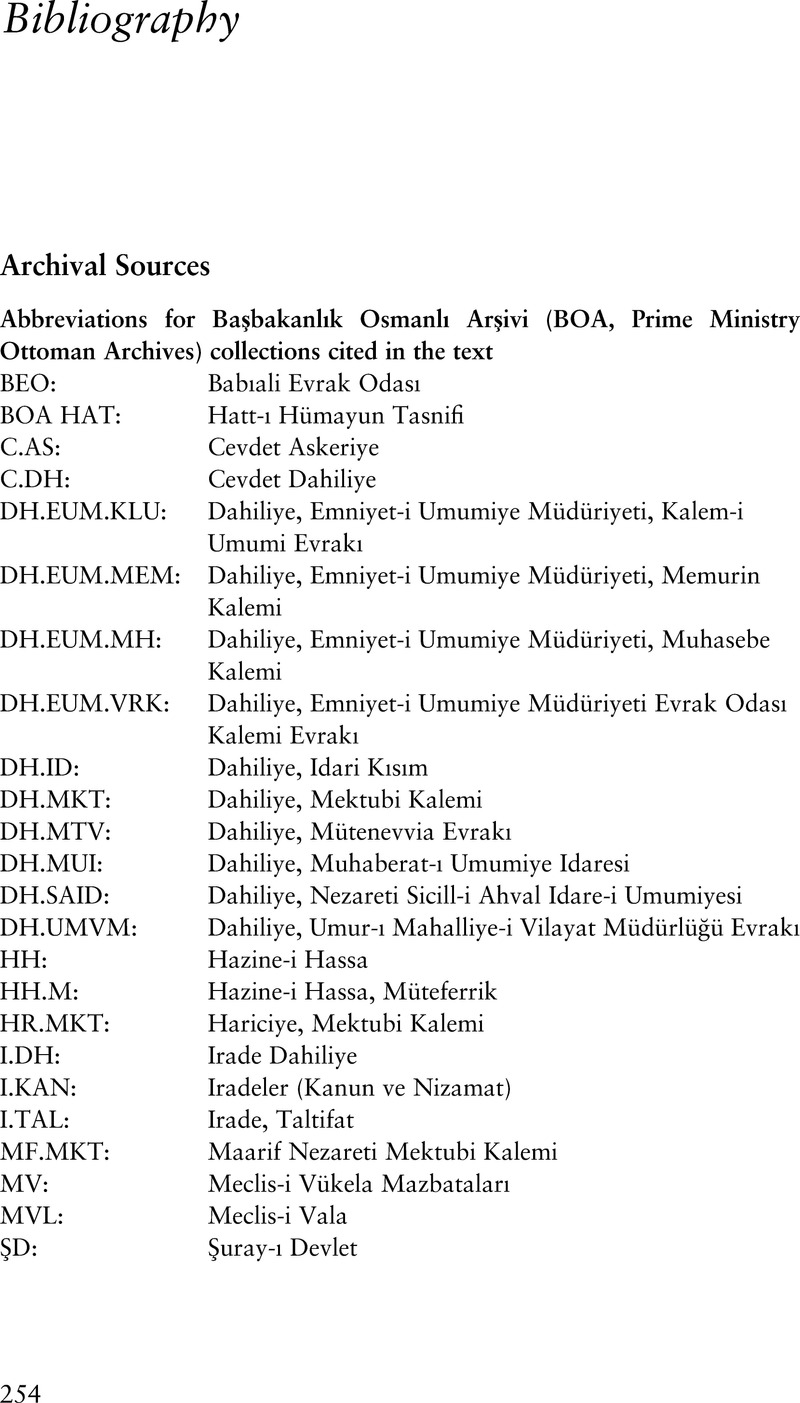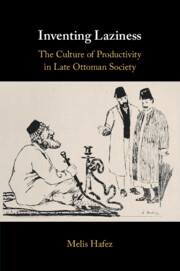Book contents
- Inventing Laziness
- Inventing Laziness
- Copyright page
- Contents
- Figures
- Preface
- Acknowledgments
- A Note on Translations and Transliteration
- Introduction
- 1 Moralizing Productivity in the Age of Reform
- 2 Criminalizing Laziness
- 3 Imagining Ottoman Dandies and Industrious Effendis
- 4 Militarizing the Productive Body
- 5 Exclusionism at Work
- Epilogue
- Bibliography
- Index
- References
Bibliography
Published online by Cambridge University Press: 10 December 2021
- Inventing Laziness
- Inventing Laziness
- Copyright page
- Contents
- Figures
- Preface
- Acknowledgments
- A Note on Translations and Transliteration
- Introduction
- 1 Moralizing Productivity in the Age of Reform
- 2 Criminalizing Laziness
- 3 Imagining Ottoman Dandies and Industrious Effendis
- 4 Militarizing the Productive Body
- 5 Exclusionism at Work
- Epilogue
- Bibliography
- Index
- References
Summary

- Type
- Chapter
- Information
- Inventing LazinessThe Culture of Productivity in Late Ottoman Society, pp. 254 - 287Publisher: Cambridge University PressPrint publication year: 2021

